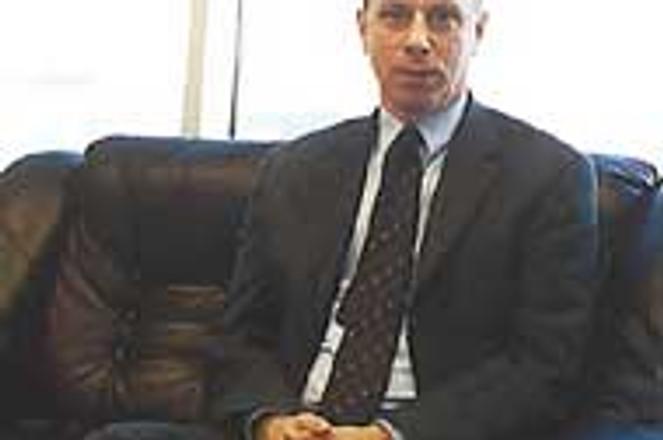Ton Verbraeken, senior tax manager at KPMG, says his firm has noted no great interest in 10-year breaks.photo: Ján Svrček
PUSHED by foreign investors but slowed by negotiations with the EU, Slovak government officials needed 18 months to push through vital legislation allowing investors to benefit from 10-year tax holidays.
Now that the Law on Investment Stimuli suggesting the tax exemption is in force, investment experts say they do not expect any significantly increased inflow of foreign investment in Slovakia in 2002.
Unclear explanations of who can qualify for the tax holidays and a cautious investment approach connected with the upcoming parliamentary elections in September are preventing companies from taking advantage of the investment package.
"The current government has done a lot to attract foreign investors to Slovakia but it's the new government that is likely to be gaining investors on this legislation," said Ton Verbraeken, senior tax manager with the KPMG international auditing and advisory firm.
"It's not only that most foreign investors would like to see the results of the elections before they decide to invest or expand in Slovakia, but also that they don't know exactly who can actually qualify for the tax breaks. The Ministry of Economy is expected to deliver a manual which will explain," Verbraeken said.
The new investment package allows both foreign and domestic businesses to qualify for 10 year tax holidays once they invest over Sk400 million ($8.3 million) into launching or expanding operations in Slovakia.
The legislation makes Slovakia fully compatible with other countries of the Visegrad group (V4) including the Czech Republic, Hungary and Poland who have been offering tax relief of the same length for several years. In the past Slovakia offered a combined package of a 100 per cent tax holiday for the first five years and 50 percent for an additional five years.
With the current package the government also offers investors subsidies of up to Sk10,000 for re-training employees and financial support for the creation of new jobs. Businesses who invest into regions with an unemployment rate of over 10 per cent are allowed to qualify for the tax exemption even if they invest only Sk200 million. Both production and service-oriented investors are eligible to qualify.
Verbraeken said that even after investors fulfilled all the basic requirements they may not qualify for the package.
"The law says that the investor should contribute to the growth of the Slovak economy, but we still don't know exactly what the company should do to qualify for the package. We understand that investors who qualify for holidays will be rated, but we don't know in which categories. That's why the manual is important for them," Verbraeken said.
He added: "We have not recorded any great interest among investors in the package."
Government officials said that with or without the manual, they did not expect any significant upturn in the inflow of foreign investment because of the tax holidays this year.
"It is important that Slovakia has caught up with its neighbours in the length of the tax holidays it's currently offering, but it's only one of several things investors look at," said Vladimír Tvaroška, adviser to Deputy Prime Minister Ivan Mikloš.
"Now investors know that in Slovakia they have exactly the same conditions as in the rest of the V4 countries, so it's natural for them to wait and decide after the elections and be sure that the next government will maintain the EU and Nato stance of the current government. Slovak membership in the two organisations is most important for them," said Ján Tóth of ING Bank.
He added: "It's simply a good deal for them to buy the assets, especially cheap labour, of future EU member states for the lowest price offered by the Union's current and potential members."


